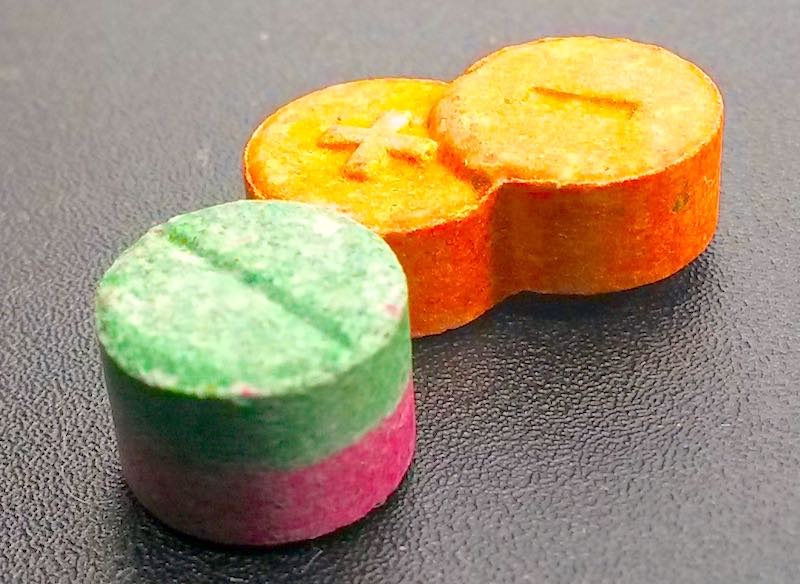Drug Facts Netherlands
Posted on: mai 4, 2016

(This article was last updated on the 23rd of March, 2018.)
Dutch Drug Information And Monitoring System 2015 Results
Every year the Dutch Drug Information and Monitoring System (DIMS) releases a report about tested drugs in the Netherlands. The organisation has a countrywide network of test locations set up to give insights into the illegal Dutch drugs market. DIMS does research into the substances contained in illegal drugs, the health risks associated with them and analyses trends in the drug market.
Drugs Information Netherlands
There are a few legal drug test labs in the Netherlands where people can get their illegal drugs tested. Most of these labs are located in the major cities in the Netherlands. Amsterdam has a few. These legal businesses test the ingredients of illegal drugs (XTC, amphetamine, cocaine, MDMA, etc.) and it’s 100% legal. They share their expertise about drugs and alcohol, its quality, effects and risks. This is the Dutch approach on informing people about drugs – The government rather have someone using drugs safer by testing it than less safe without doing so. In Amsterdam there are two official drug test labs called GGD et Jellinek. These are mostly visited by locals because tourists don’t know this.
The 2015 Drug Results Netherlands
 XTC/MDMA test in one of Amsterdam’s drug test labs.
XTC/MDMA test in one of Amsterdam’s drug test labs.
The number of tested XTC samples has more than doubled since 2005. The average amount of MDMA per pill rose from 81 to a 150mg during that same time period. The second most turned in drugs for testing was cocaine, 13 percent of all samples were cocaine. Cocaine is often diluted with levamisole, which adds extra health risks. In 2015 cocaine powder samples contained on average 64% of pure cocaine.
Total Number of Drug Samples Increased Again
The Dutch Drug Information and Monitoring System notes that, surprisingly, in 2015 the total number of handed in samples increased again substantially. The number of 4-Fluoroamphetamine samples doubled since last year. After XTC/MDMA, cocaine and speed 4-FA is now the most handed in drug recorded by the Dutch Drug Information and Monitoring System.
How Does The Dutch Drug Information and Monitoring System Work?
Different types of organizations across the Netherlands are connected to the Dutch Drug Information and Monitoring System. They offer weekly consulting-hours. During consulting-hours drug users can present their drugs for testing. If the taken drugs sample corresponds with samples in the database the drug user will immediately be informed about the safety profile of the drugs. If the drug sample doesn’t appear in the database a sample will be sent to the test lab for further analysis. After a week the results will be relayed to the drug provider.
Sometimes a drug test leads to such alarming results that a national warning is issued, sometimes with help of the Dutch government. In 2015 this happened for instance because of very high doses of MDMA in XTC pills. During the Amsterdam Dance Event in 2015 there was a pill on the market with a MDMA dosis of 300 milligram.
The Collected Drug Samples And Their Risks:
The Dutch Drug Information and Monitoring System made an overview of the drug samples and accompenying risks.
XTC/ MDMA
- 57% of all samples that were handed in at DIMS contained more than 140 mg’s of MDMA. The strongest pill of 2015 contained a stagering 293 mg of MDMA.
- Risks: Overheating, exhaustion, brain damage.
Cocaine
- 13% of all samples were cocaine. Cocaine often gets cut up with levamisole, a medication used to treat parasitic worm infections.
- Risks: Paranoia, Strong dependence, ways heavy on the body, cardiovascular problems. Lung damage from smoking, abscess from needling, nasal mucosa infection from snorting cocaine.
- Cocaine cut up with levamisole can lead to: weakened immune system, fever, rash, nausea, diarrhea, vomiting, headaches, disorder and dizziness.
Speed
- The amount of amphetamines in speed samples handed over to Dutch Drug Information and Monitoring System varies per year. In 2015 the average percentage was 46 percent. Nine percent of all the collected samples were speed related.
- Risks: Overheating, exhaustion, brain damage, paranoia, ways heavy on the body.
4-Fluoroamphetamine (4-FA)
- 4-FA is described subjectively as being between amphetamine and MDMA. It first showed up at DIMS back in 2017. Since then it’s the fastest growing sample test drug. In 2015 more 4-FA samples were tested than in all previous years combined.
- Risks: Exhaustion, nausea, vomiting, headache, disorder, dizziness, heart palpitations.
Ketamine
- Ketamine also gets tested a lot, in the last five years test samples have tripled at Dutch Drug Information and Monitoring System. In 2015 Ketamine samples had an average purity of 77 percent.
- Risks: Bad Trip, nausea, vomiting, respiration problems, muscle rigidity or muscle paralysis.
2C-B
- 2C-B is mostly found in pill form and occasionally in powder form. The effects of 2C-B are strongly dependent on the dose. 95% of all tested samples actually was 2C-B.
- Risks: Bad Trip, effects are stronger than expected/ overdose.
LSD
- Two percent of all tested samples were LSD but more than 25% of them were something completely different.
- Risks: Bad trip, Nausea, Flashbacks.











[…] experts recommend drug testing in clubs, similar to the Drug Information and Monitoring System (DIMS) that currently exists in the Netherlands. This service allows anyone to have their drugs tested for […]